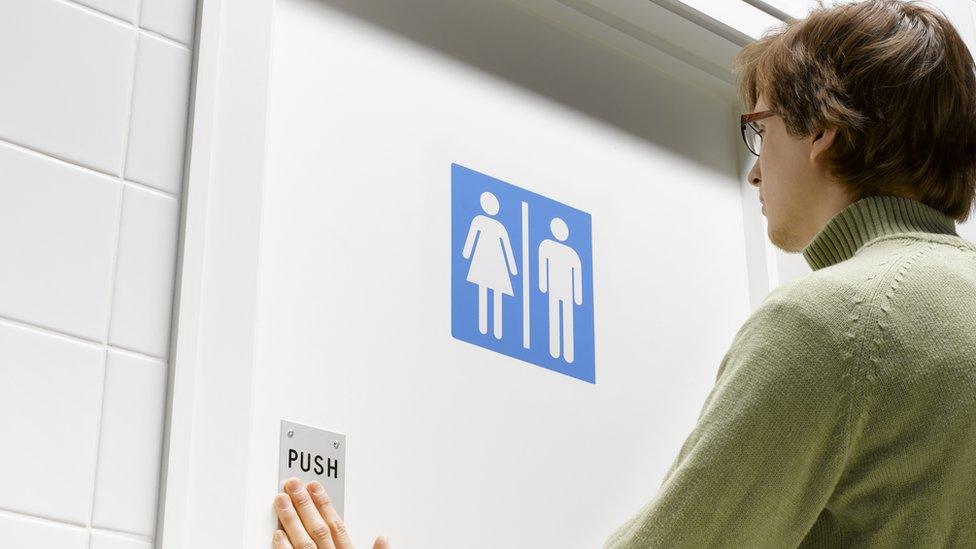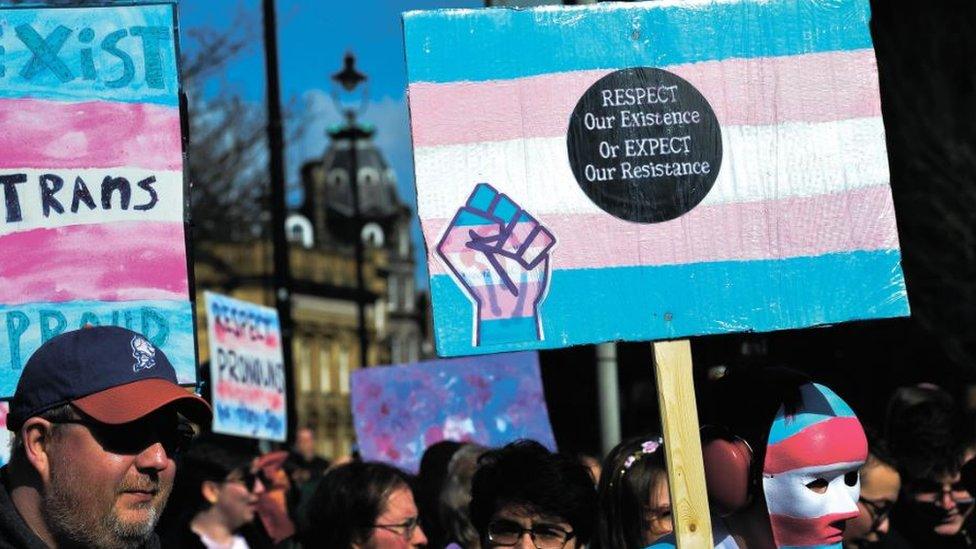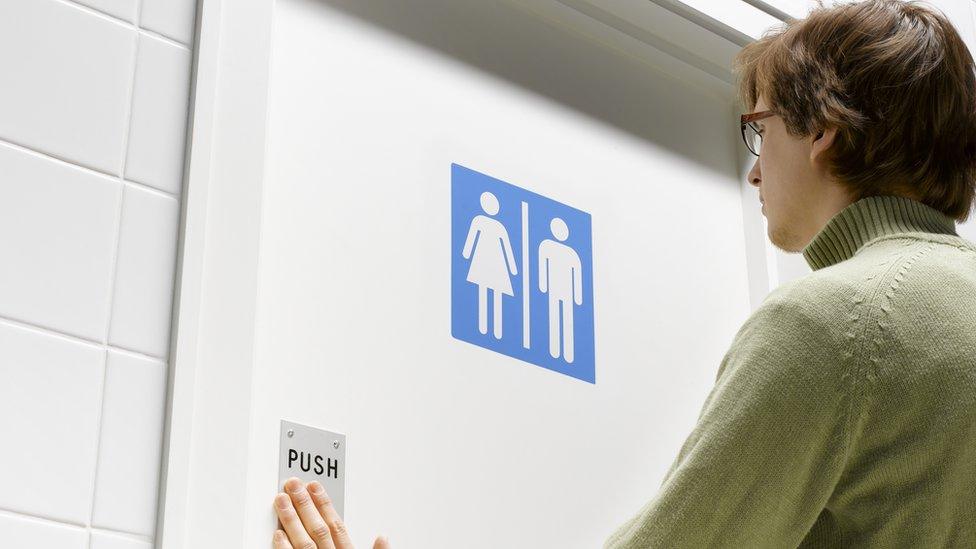NHS charter to stress biological sex when placing patients in wards
- Published

Transgender women should not be put on single-sex female NHS wards, the government is proposing.
The measure is part of a raft of changes to the NHS Constitution for England, the charter of rights for patients.
The proposals stress the importance of biological sex for the first time when it comes to same-sex accommodation and intimate care.
In both cases, the rights are available only where possible.
For example, same-sex accommodation rights, which have existed for years, can and are breached where there is a clinically urgent need to admit and treat a patient and do not extend to areas such as critical care or accident and emergency.
The guidance also means that trans men should not be housed on single-sex male wards.
Under the proposals:
transgender people, whose gender identity differs from their biological sex, may be provided single rooms, where appropriate
patients will have the right to request a person of the same biological sex delivers any intimate care
Health Secretary Victoria Atkins said it was about making it clear that "sex matters".
"We want to make it abundantly clear that if a patient wants same-sex care, they should have access to it wherever reasonably possible," she said.
"By putting this in the NHS Constitution, we're highlighting the importance of balancing the rights and needs of all patients, to make a healthcare system that is faster, simpler and fairer to all."
'Trampled over'
Maya Forstater, of the Sex Matters campaign group, said the changes were "excellent news".
"The confusion between 'sex' and 'gender' in official policies like the NHS Constitution is what has enabled women's rights to be trampled over in the name of transgender identities," she said.
But Cleo Madeleine, of trans-led group Gendered Intelligence, said robust policies were already in place and the government had its priorities wrong.
"After 14 years of austerity, medical professionals are crying out for more funding, more resources, and better conditions for staff and patients," she said.
"The government seems hell-bent on pursuing its obsession with the transgender community instead of addressing these longstanding needs."
'Martha's rule'
The changes are part of a wider review of the NHS Constitution, which the government must complete every 10 years.
They also include a plan to embed patients and their loved ones' right to access a rapid review from outside the care team if the patient is deteriorating.
This is the right behind "Martha's rule", which is being introduced in the NHS, to ensure patients know they can ask for a second opinion, with the government providing funding to hospitals for posters and leaflets informing patients and their families.
Martha Mills died aged 13, after being admitted to King's College Hospital, south London, in 2021, having injured her pancreas slipping on to the handlebars of her bike while cycling.
She later developed sepsis - but with better care, could have survived, an inquest found.
All the changes will be consulted on over the next eight weeks, before the constitution is updated later this year.
Labour's shadow health secretary Wes Streeting said: "Rights on paper are worthless unless they are delivered in practice.
"The NHS constitution already pledges that no patient will have to share an overnight ward with patients of the opposite sex, but that is not the case for too many patients."

Have you been affected by the issues in this story? Share your experiences by emailing haveyoursay@bbc.co.uk, external.
Please include a contact number if you are willing to speak to a BBC journalist. You can also get in touch in the following ways:
WhatsApp: +44 7756 16580
Tweet: @BBC_HaveYourSay, external
Please read our terms & conditions and privacy policy
If you are reading this page and can't see the form you will need to visit the mobile version of the BBC website to submit your question or comment or you can email us at HaveYourSay@bbc.co.uk, external. Please include your name, age and location with any submission.
Related topics
- Published11 February 2022

- Published4 April 2022
